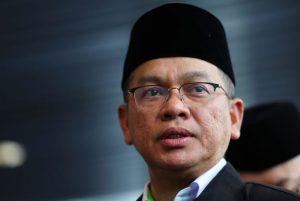
A task force to coordinate the development of Malaysia’s halal industrial parks (Halmas) was formed today.
Deputy Prime Minister Datuk Seri Dr Ahmad Zahid Hamidi said it would gather feedback from state governments on the limitations and challenges in creating such facilities for businesses.
“Only 11 per cent of the alloted plots of land of about 13,500 acres were developed as Halal industrial parks (with Halmas accreditation).
“The task force that I’m chairing will meet in two weeks’ time to further discuss the matter,” he told reporters after chairing the Halal Industry Development Council committee meeting today.
The task force’s primary objective is to enhance the existing halal park infrastructure and foster the growth of new halal parks, with the secretariat provided by the Investment, Trade and Industry Ministry.
It is aimed at adding value to the halal industry by facilitating strategic development initiatives.
Zahid said among the challenges raised by state representatives during the meeting, including lack of incentives and outdated infrastructure.
There are currently 14 Halmas-gazetted parks nationwide with a total area of 5,484.7ha.
“MITI, through the Halal Development Corporation, will carry out improvements in the Halmas development framework that is more inclusive to attract more halal-based activities into the industrial parks.
“In this respect, I am ‘colour-blind’ and will not be biased and have prejudice,” said Zahid, in giving his assurances that he would seek solutions and provide assistance to all the state governments.
At the meeting, he said, other matters pertaining the halal industry were discussed with the relevant papers presented, namely, the progress of the Halal Industry Master Plan (HIMP 2030), enhancement of governance, the upcoming Malaysia International Halal Showcase (Mihas), the digitalisation of halal certification and national policy on halal industry.
He said he had instructed more collaborative efforts to be implemented to increase companies’ participation in the industry that goes beyond food and beverages (F&B), through the halal certification in boosting the market at both the domestic and global levels.
Zahid, in a statement later said the HDC reported 9,162 companies have obtained the halal certification, of which 1,472 were exporters with an overall value of RM53.7 billion.
The industry contributed 7.5 per cent of the country’s gross domestic product (GDP) last year, with a target of 8.1 per cent for 2025.



